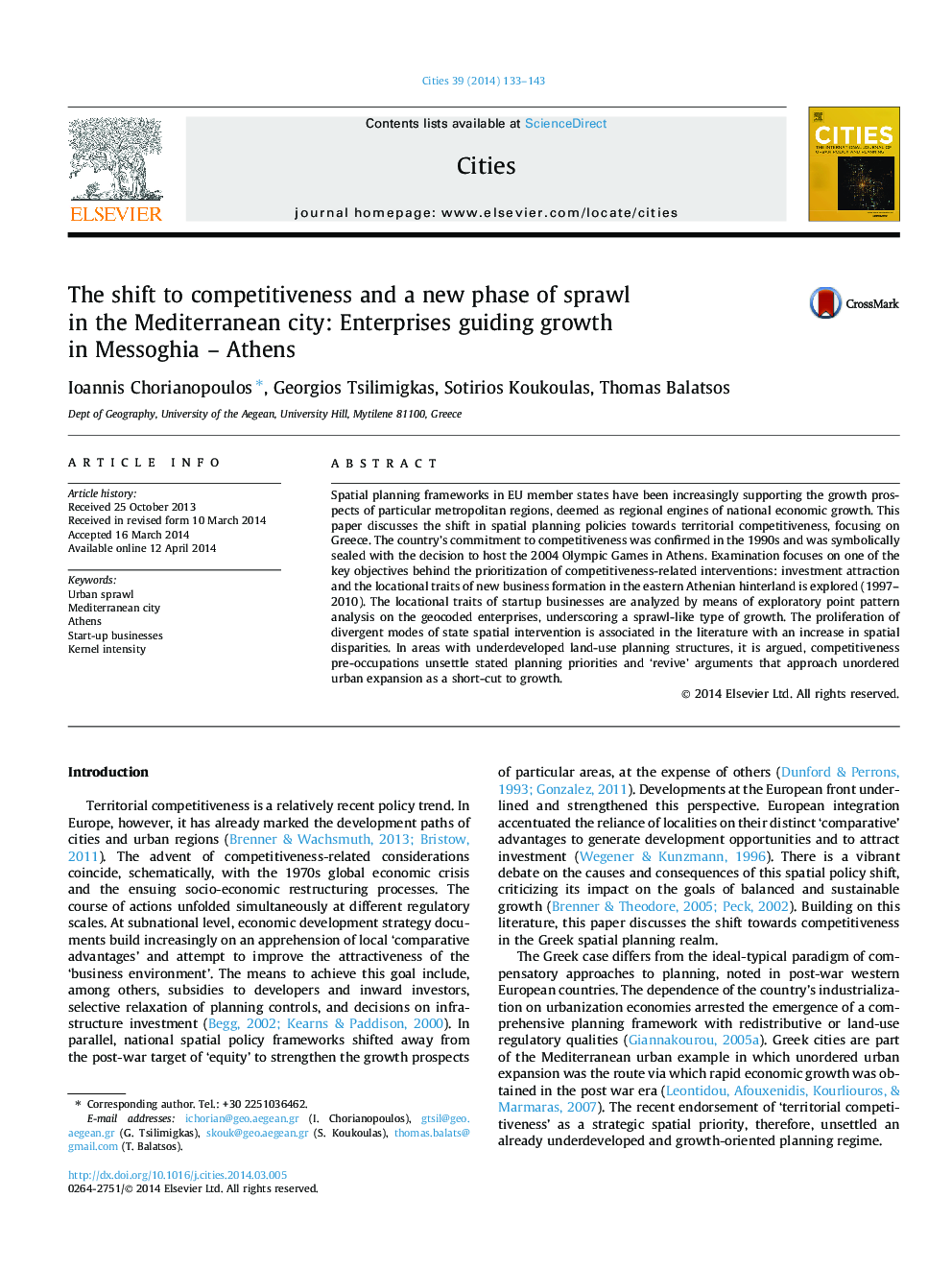| Article ID | Journal | Published Year | Pages | File Type |
|---|---|---|---|---|
| 7418768 | Cities | 2014 | 11 Pages |
Abstract
Spatial planning frameworks in EU member states have been increasingly supporting the growth prospects of particular metropolitan regions, deemed as regional engines of national economic growth. This paper discusses the shift in spatial planning policies towards territorial competitiveness, focusing on Greece. The country's commitment to competitiveness was confirmed in the 1990s and was symbolically sealed with the decision to host the 2004 Olympic Games in Athens. Examination focuses on one of the key objectives behind the prioritization of competitiveness-related interventions: investment attraction and the locational traits of new business formation in the eastern Athenian hinterland is explored (1997-2010). The locational traits of startup businesses are analyzed by means of exploratory point pattern analysis on the geocoded enterprises, underscoring a sprawl-like type of growth. The proliferation of divergent modes of state spatial intervention is associated in the literature with an increase in spatial disparities. In areas with underdeveloped land-use planning structures, it is argued, competitiveness pre-occupations unsettle stated planning priorities and 'revive' arguments that approach unordered urban expansion as a short-cut to growth.
Keywords
Related Topics
Social Sciences and Humanities
Business, Management and Accounting
Tourism, Leisure and Hospitality Management
Authors
Ioannis Chorianopoulos, Georgios Tsilimigkas, Sotirios Koukoulas, Thomas Balatsos,
